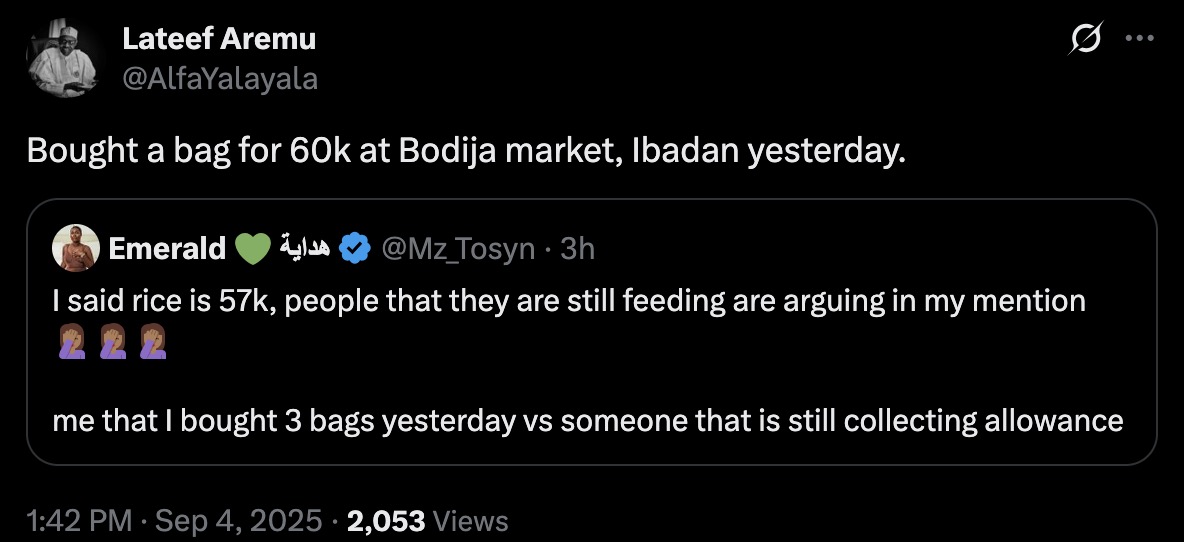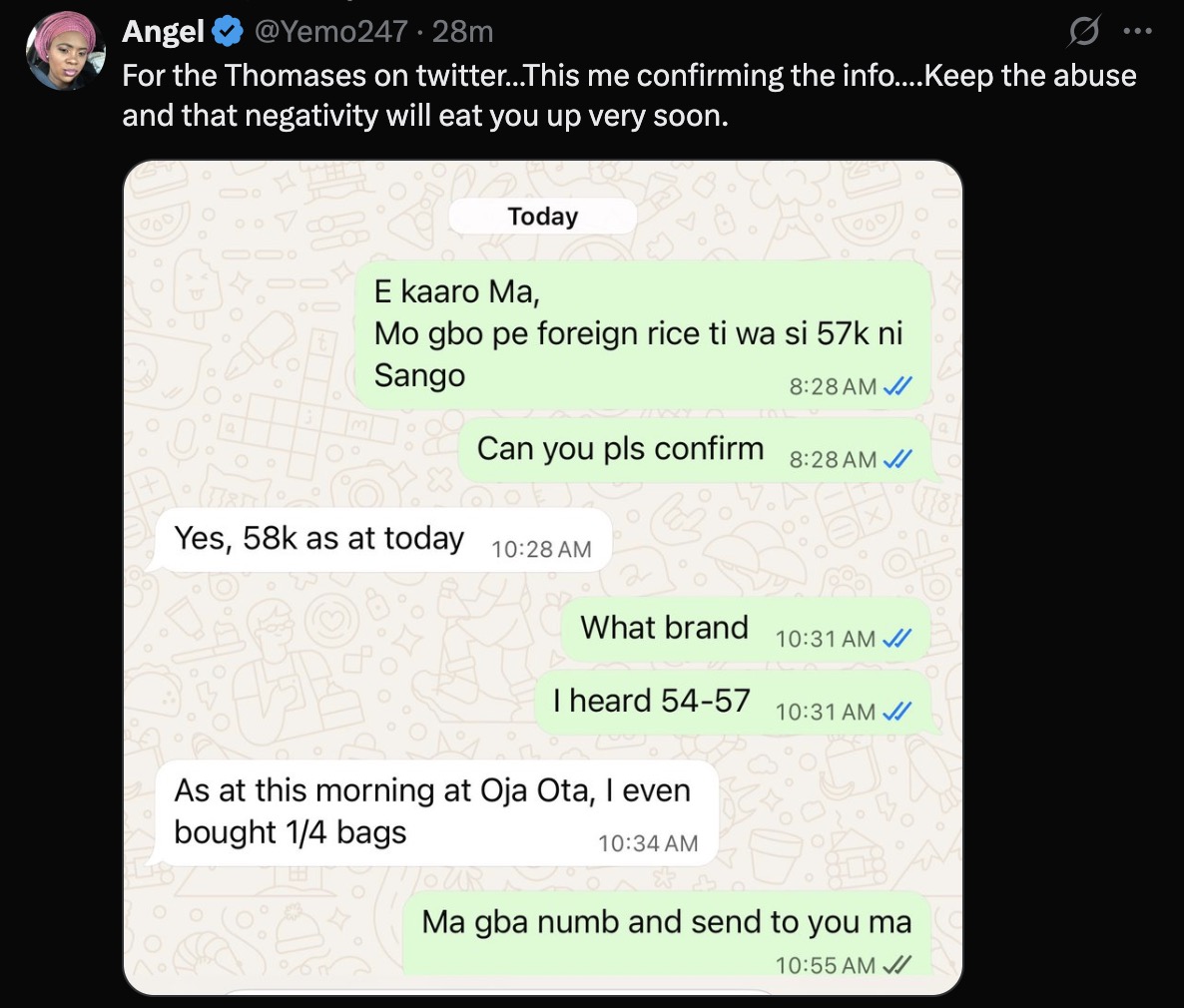Social media is abuzz after market surveys revealed a sharp drop in the price of imported rice across parts of Nigeria.
On Thursday, traders at Sango Ota market confirmed that the cost of a 50kg bag of imported rice, which previously sold between ₦85,000 and ₦90,000, has now fallen drastically to between ₦56,000 and ₦62,000.
The news triggered jubilation among some supporters of President Bola Tinubu, who hailed the development as proof that his administration is delivering on promises to ease inflationary pressures.
On X (formerly Twitter), user @UnclePamilerin wrote: “Rice prices are finally dropping, minimum wage can buy a bag now. Step by step, we’re getting there. Nigeria will work in our lifetime.”

Another user, @Mz_Tosyn, echoed the optimism: “I said rice is 57k, people that they are still feeding are arguing in my mention  . Me that I bought 3 bags yesterday vs someone that is still collecting allowance.”
. Me that I bought 3 bags yesterday vs someone that is still collecting allowance.”


However, critics dismissed the celebration as misplaced, pointing out that rice prices are still disproportionately high compared to previous administrations.
Critics ridicule celebration over drop in price of rice
@Uptownoflagos argued: “You’re celebrating that minimum wage for a month can now buy a bag of rice? Where’s 10 years ago, minimum wage could buy 3 bags of rice, transport, feed and 5% for savings. Are we playing in this country?”
Similarly, @PDPRepublic wrote: “APC influencers trying to convince Nigerians that Tinubu is doing well.  @_Kamor questioned: “So…. boil rice in cold water and eat?!? How much is propane? How much is electricity fee? Tomato? Oil? How much is TP to work?”
@_Kamor questioned: “So…. boil rice in cold water and eat?!? How much is propane? How much is electricity fee? Tomato? Oil? How much is TP to work?”
Mista_Sean added: “Youths like this are the reason the political class will always have their ways with corruption and bad leadership.”
@smiling_dictato noted: “This guy is a big fool, not talking about the stupid taxes being imposed on us every two days. Yehyeh minimum wage can buy a bag of rice now, because na only bag of rice you go chop for the month.”
However, the price drop has also reignited debate among Nigerians, many of whom argue that overall living costs — including food staples, fuel, and transport — remain painfully high despite the fall in rice prices.
#RicePriceDrop #NigeriaEconomy #Tinubu






